Revolutionizing the Future of Transportation with Electric Car Battery Ore!
Electric cars are making significant gains in popularity in recent years for a variety of reasons. The most notable of which is climate change, as people are becoming more aware of their carbon footprint and the impacts that gas-powered vehicles have on the environment. However, as with any type of vehicle, electric cars need a source of power, and this is where the importance of electric car batteries comes in.
Electric car batteries are the heart of the vehicle, as they provide the energy to power the vehicle’s electric motor. They are designed to store and deliver energy when needed, providing a smooth and seamless driving experience. Without a reliable and efficient battery, an electric car would simply not work.
Not only are electric car batteries crucial for the vehicle’s performance, but they also play a significant role in reducing the environmental impact of driving. Unlike traditional fossil fuel-powered cars, electric vehicles emit no harmful pollutants, making them a cleaner and greener transportation option. Electric car batteries also have a longer lifespan than traditional car batteries, reducing the waste produced by the automotive industry.
In conclusion, the importance of electric car batteries cannot be overstated. They are one of the main factors driving the growth of electric vehicles and reducing the carbon footprint of transportation. As battery technology continues to improve, it is likely that electric cars will become even more efficient and practical, making them an even more attractive option for environmentally-conscious drivers.
What is Electric Car Battery Ore?
Electric car battery ore refers to the raw materials required for making batteries used in electric cars. These materials are typically sourced from the earth’s crust and require mining or extraction processes to obtain. The most common metals used in electric car batteries include lithium, cobalt, nickel, and manganese.
The demand for these materials has increased significantly in recent years due to the growing popularity of electric cars. The mining and extraction of these materials have raised concerns over their environmental impact and ethical concerns regarding working conditions in mines. The development of alternative battery chemistries that use fewer of these materials is ongoing, but for the time being, electric car battery ores are necessary for the production of electric vehicles.
Overview of Battery Ore Mining
Electric car battery ore refers to the minerals and metals required to produce the batteries used in electric cars. These batteries are an essential component that powers the vehicles and makes them more environmentally friendly compared to traditional gasoline-fueled vehicles. The most common materials used in electric car batteries are lithium-ion, cobalt, nickel, and graphite.
Additionally, mining companies extract these materials from various regions worldwide, including South America, Africa, and Asia. Although the demand for electric vehicles is increasing, mining battery ore remains a complex and challenging process. The mining process involves several environmental and social sustainability challenges, such as water management, land use, and labor rights.
However, companies in the mining industry continue to invest in sustainable practices and new technologies to mitigate these challenges and promote responsible mining.
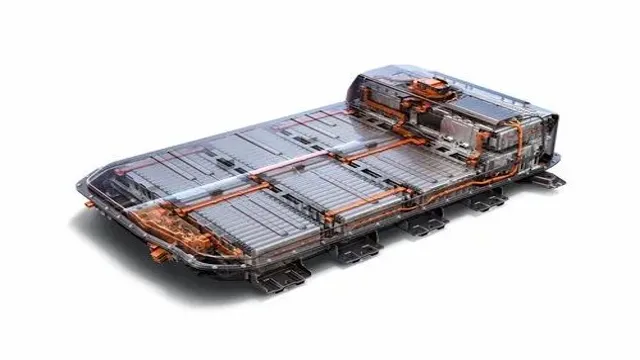
The Role of Lithium in Electric Car Batteries
Electric car batteries are made up of several different materials, one of which is lithium. This metallic element is widely used in electric vehicle batteries due to its ability to store and release energy efficiently. Lithium is extracted from various sources, such as brine deposits, hard rock, and clay.
However, the most commonly used ore for electric car batteries is lithium-ion batteries, which are considered the most powerful and long-lasting type of rechargeable battery. By harnessing the power of lithium, electric vehicles can achieve longer ranges, faster charging times, and improved overall performance. So, the crucial role of lithium in electric car batteries cannot be overstated.
Without it, electric vehicles would not be nearly as practical or efficient as they are today.
Efficiency and Sustainability
One of the key factors contributing to the efficiency and sustainability of electric cars is the battery ore used in their production. The most commonly used battery ore currently is lithium, which is mined from various sources across the world. However, the intense demand for battery metals has raised concerns about the environmental and social impact of mining operations.
To address these issues, researchers are exploring alternatives such as using recycled materials and developing new battery chemistries. Additionally, efforts are being made to improve the efficiency and durability of batteries to extend their lifespan and reduce waste. Ultimately, the sustainable production and disposal of electric car batteries will play a crucial role in ensuring the long-term viability of the electric vehicle industry.
Comparison of Electric and Gasoline Cars
When considering the efficiency and sustainability of electric and gasoline cars, it’s important to take a close look at both options. Electric cars have become increasingly popular due to their low emissions and overall sustainability. A single electric car can save over three tons of greenhouse gas emissions each year, helping to make our planet a cleaner place.
On the other hand, gas-powered cars continue to be the norm in terms of sheer numbers. However, they are known for being less sustainable than electric cars due to the environmental impact of burning fossil fuels. This creates a large carbon footprint, which contributes to global warming.
When it comes down to it, the choice between an electric or gasoline car comes down to what’s most important to the individual. Whether you prioritize efficiency, sustainability, or any other factor, it’s clear that both options have something to offer.
Sustainable Mining Operations
Sustainable mining operations are an essential aspect of preserving the environment while also extracting valuable resources from the earth. Efficiency and sustainability are the two pillars of successful mining operations in the modern world. Companies must strive to minimize their environmental impact while still maximizing their output and profits.
By implementing green technologies, such as renewable energy and efficient water usage, mining companies can significantly reduce their carbon footprint and protect local ecosystems. Moreover, by adopting sustainable practices like recycling, reusing, and repurposing waste materials, they can contribute positively to the circular economy. The keyword here is sustainability, and by prioritizing it, mining operations can preserve the earth’s natural resources for generations to come.
Future of Electric Car Batteries
Electric car batteries have come a long way over the years, and the future is looking bright. For one, advancements in efficiency and sustainability will play a major role in making electric cars more accessible to the masses. The more efficient a battery is, the longer it can last on a single charge, which means a longer driving range.
Additionally, the more sustainable the production process is, the less of a carbon footprint electric cars will have. This is a key factor in the push towards renewable energy sources as society strives to reduce its impact on the environment. As such, the focus on sustainably sourced materials, recyclability, and reduced dependence on rare minerals like cobalt will be vital in ensuring a sustainable future for electric car batteries.
Ultimately, the future of electric car batteries looks promising, with technology continuously improving and the industry committed to making electric cars more accessible, sustainable, and efficient.
Advancements in Battery Technology
Electric car battery ore is playing a critical role in the advancement of battery technology. As electric vehicles continue to grow in popularity, the need for more efficient and longer-lasting batteries is urgent. This is driving significant investment in the research and development of new battery technologies, including those which require alternative raw materials, such as electric car battery ore.
This ore is an excellent conductor of electricity and has the potential to provide an environmentally friendly solution to the growing demand for electric vehicle batteries. The advantages of using this ore include its high energy density, which allows for more extended periods of driving without having to recharge the battery. Moreover, the use of this type of ore can reduce the environmental impacts of battery production and disposal.
With the growing demand for more efficient and cost-effective batteries for electric vehicles, it is essential to continue investing in the development of new battery technologies that use alternative raw materials like electric car battery ore.
Solid-State Batteries
Advancements in Battery Technology have led to the invention of solid-state batteries, which are gradually becoming the go-to choice for powering our electronic devices. Unlike traditional lithium-ion batteries, solid-state batteries do not use liquid electrolytes, thus making them more durable, lightweight, and safer. Additionally, solid-state batteries can hold more charge than their traditional counterparts, meaning they have longer battery life.
This is all made possible by the use of solid materials, such as ceramic or glass, as an electrolyte. They significantly reduce the risk of combustion due to their non-flammable structure. Solid-state batteries are more energy-efficient, and they can hold a charge for an extended period.
This makes them ideal for electric vehicles and electronic gadgets that require a lot of power. Their durability means that they can be used for years without the need for replacement, which is a stark contrast to the traditional lithium-ion batteries that need to be disposed of frequently. In conclusion, solid-state batteries are a game-changer that will revolutionize the electronic industry.
Graphene Batteries
Graphene batteries are a hot topic in battery technology advancements. Graphene, a material consisting of a single layer of carbon atoms, has been found to have unique electrical and physical properties that make it a promising candidate for high-performance batteries. These batteries have the potential to provide high-energy storage, fast charging, and longer lifespan.
They can also be more environmentally friendly than traditional batteries since graphene is a renewable material and does not contain harmful elements. The possibilities of graphene batteries are exciting, but there are still challenges to overcome, such as scaling up production and maintaining cost-effectiveness. Nonetheless, the potential benefits of graphene batteries make them an area of active research and development.
With time and continued progress, graphene batteries could revolutionize the energy storage industry and potentially change the way we use energy in our daily lives.
Conclusion: Electric Cars and Battery Ore
In conclusion, the electric car battery ore is a shining example of how innovation and technology can transform a finite resource into a seemingly endless source of power. With its ability to recharge quickly and provide a cleaner, more sustainable form of transportation, it’s no wonder electric cars are revving up to be the future of mobility. So, let’s harness the power of this remarkable ore and pave the way for a brighter, more efficient tomorrow!”
FAQs
What is an electric car battery made of?
Electric car batteries are typically made of lithium-ion cells, which are composed of lithium cobalt oxide, nickel cobalt aluminum oxide, or lithium iron phosphate materials.
How long do electric car batteries last?
Depending on the make and model, electric car batteries can last anywhere from 100,000 to 200,000 miles before they must be replaced.
Can electric car batteries be recycled?
Yes, electric car batteries can be recycled, but the process can be complex and expensive. However, recycling helps reduce waste and recover valuable materials like cobalt and lithium.
Is there enough ore for electric car batteries?
With the growing demand for electric cars, there could be concerns about the supply of critical metals, such as cobalt and lithium. However, various companies are working to find new sources of these metals and to decrease their usage in batteries.
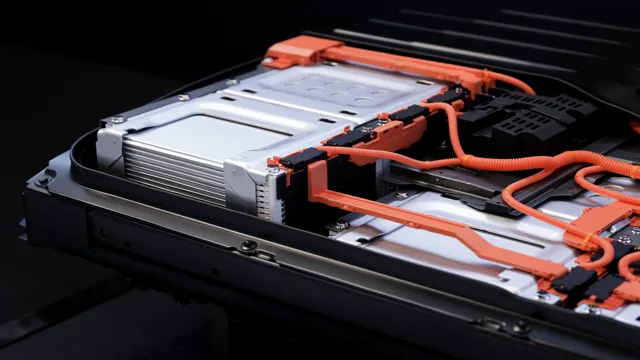
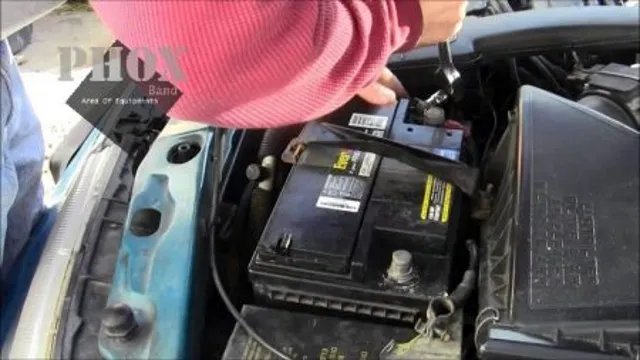
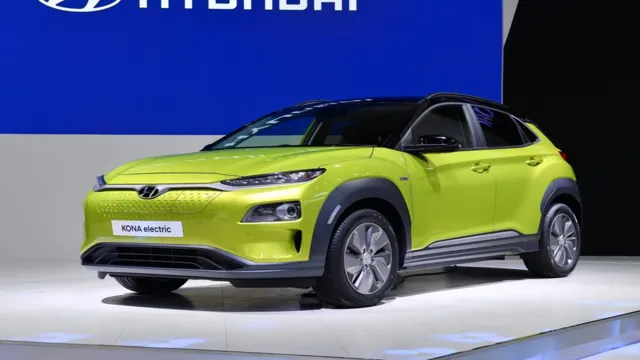
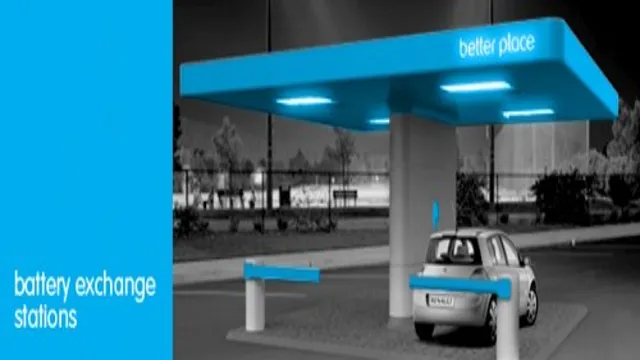
![Revolutionizing the Future: The Groundbreaking Electric Car Battery Made Up Of [Insert Material]](https://electriccarwiki.com/wp-content/uploads/2023/12/electric-car-battery-made-up-of.webp)
